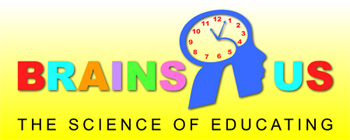Brains R Us: Neuroscience and Education Town Hall
San Diego, CA, February 19, 2008 -- On any given weekday, about a quarter of the U.S. population is occupied with the critical business of education – including 50 million students in K-12 public schools, six million more in private schools, 18 million in college, plus all of their teachers. Education is a big business, but a struggling one. As the nation grapples with issues facing its troubled educational system, can neuroscience provide insights and solutions?
|
On March 3, the Temporal Dynamics of Learning Center at UC San Diego and The Science Network will hold a public discussion of the possibilities.
“Brains R Us” – a town hall on the “science of educating, from synapse to schoolroom, neurons to neighborhoods” – takes place in the Frederic de Hoffmann Auditorium, at the Salk Institute for Biological Studies. The meeting begins at 8 a.m. and runs through 5 p.m., with lunch included and a reception following. The proceedings will be webcast live via the UCSD division of Calit2, and will be archived for later on-demand viewing at The Science Network and Calit2 websites.
The meeting will bring together researchers, educators, policymakers, parents and students for an interactive daylong discussion.
Confirmed participants include literacy advocate John Corcoran, author of the autobiography “The Teacher Who Couldn't Read”; Kurt Fischer, president of the Society for Mind, Brian and Education at Harvard University; teen-brain expert Jay Giedd of the National Institute of Mental Health; and Nobel Prize-winning physicist Leon Lederman, founder of the Illinois Mathematics and Science Academy. The Council of Chief State School Officers will also participate in this meeting.
The Science Network will webcast live and also tape the dialogue for later distribution online.
The town-hall format is one that The Science Network has used successfully several times to address such highly relevant topics at the “intersection of science and public policy” as science and religion (the “Beyond Belief” series, sleep and stem cell research.
“We’re interested in the synergy of different groups coming together,” said Roger Bingham, cofounder and director of The Science Network, as well as a scientist at the Salk Institute and UCSD. “We aim to create an environment in which disparate people can talk to and learn from one another. So the emphasis is on conversation rather than presentation.”
Each invited participant is, in Bingham’s words, being asked to bring to the meeting “a thought bomb and lob it out into the room for discussion.”
Based at UC San Diego, the multidisciplinary and multi-institutional Temporal Dynamics of Learning Center (TDLC) is one of six Scientific Learning Centers funded by the National Science Foundation. The TDLC focuses on time and timing as critical to understanding how the brain learns and applies this understanding to improve educational practice.
“With ‘Brains R Us,’ we want take a long look at where we stand. We’re not successfully teaching the fundamentals, the three R’s, in our schools,” said Terry Sejnowski, co-director of the TDLC and co-director of the TDLC’s Education and Outreach Center, and also head of the Computational Neurobiology Lab at the Salk Institute and a professor of biology at UCSD. “The goal of the town hall, and TDLC more broadly, is to do what we call ‘in-reach.’ We realize that we, as scientists, don’t really understand all the problems and the practical challenges. So we need help from the experts out in the trenches to tell us which questions our research should ask.”
The meeting is being organized by Bingham, Sejnowski and Paula Tallal, codirector of the TDLC’s Education and Outreach Center. The TDLC is a collaborative consortium of UCSD, Rutgers University and Vanderbilt University. Gary Cottrell, professor of computer science and engineering at UCSD, is principal investigator of the TDLC and co-directs the center with Sejnowski and Andrea Chiba, associate professor of cognitive science at UCSD.
“Brains R Us” is co-sponsored by the UCSD Office of Research Affairs, the UCSD Kavli Institute for Brain and Mind, the Scientific Learning Corp., the Crick-Jacobs Center at the Salk Institute, and the UCSD division of the California Institute for Telecommunications and Information Technology (Calit2).
Event details, participant bios and registration at http://brainsrus2008.eventbrite.com or 858-822-1981.
Admission and parking are free.
Related Links
Temporal Dynamics of Learning Center
The Science Network
Brains R Us: The Science of Educating
Media Contacts
Media Contact: Inga Kiderra, 858-822-0661, ikiderra@ucsd.edu


